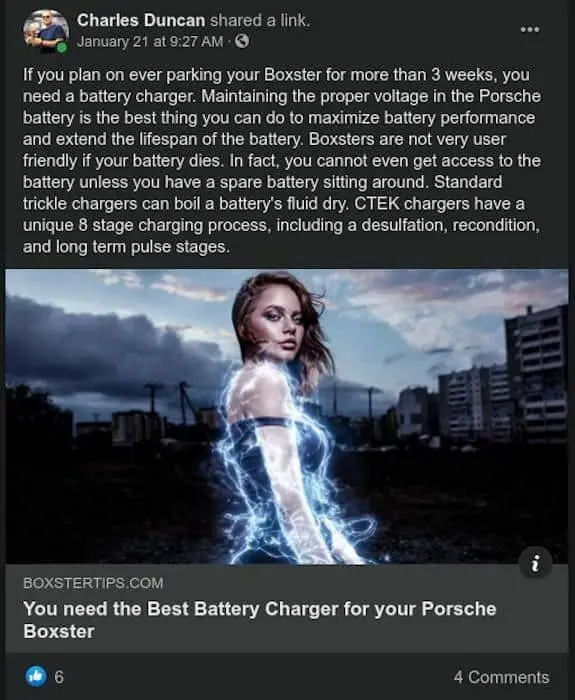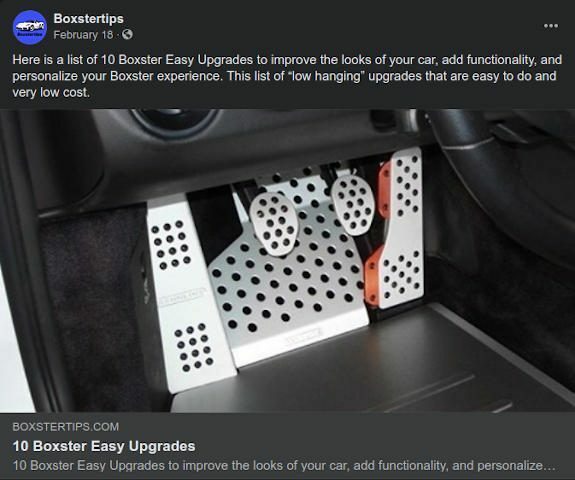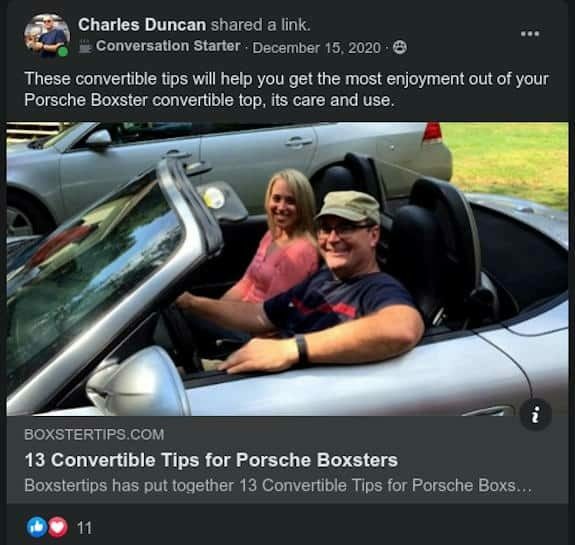Facebook Marketplace has become a popular platform for buying and selling Porsche Parts. It is critical that you Avoid Porsche Parts Facebook Scams.
1.0 Introduction to Facebook Scams
Facebook Marketplace has become a popular platform for buying and selling goods locally. It is critical that you Avoid Porsche Parts Facebook Scams. Facebook attracts scammers who will exploit the trusting nature of users to perpetrate various fraudulent schemes. To ensure a safe and secure experience, it’s crucial to recognize the red flags and employ preventive measures. In this article, we will discuss common Facebook Marketplace scams, red flags to watch out for, and tips to protect yourself from falling victim to these scams.

2.0 Common Facebook Marketplace Scams
- Low prices for high-ticket items: If a deal seems too good to be true, it probably is. Scammers often lure potential buyers with unbelievably low prices for high-value items such as smartphones, laptops, or luxury goods. They hope that the prospect of a bargain will entice users to make hasty decisions without thorough investigation.
- Refusal to meet up in person: Legitimate transactions on Facebook Marketplace usually involve face-to-face meetings to inspect the item and exchange payment. Scammers will avoid in-person meetings and provide various excuses, such as distance or lack of availability. Avoid engaging with sellers or buyers who refuse to meet in person.
- Moving conversations outside Facebook Messenger: Scammers might attempt to move the conversation to private channels like email or messaging apps. Doing so allows them to bypass Facebook’s security measures and increases the risk of being scammed. Always keep your communication within Facebook Messenger, which offers some level of protection.
- Payment in the form of a gift card: One of the most prevalent scams involves scammers requesting payment via gift cards. Legitimate sellers would never ask for payment through gift cards. Once the scammer obtains the gift card codes, they can quickly redeem them, leaving the victim with no recourse for recovering the funds.
- Requesting deposits before receiving items: Scammers may ask for a deposit to “reserve” an item, especially if it is a high-demand product. However, once they receive the deposit, they disappear, leaving the buyer without the item or any means of getting their money back.
- Shipping items before payment is received: As a seller, if you ship an item before receiving payment, you risk losing both the item and the money owed to you. Always ensure you have received payment before shipping any item.
- Buyers providing a prepaid shipping label: In this scam, the buyer sends a prepaid shipping label to the seller. However, the label is either fake or funded with stolen credit card information. The seller sends the item, but the payment never comes through, leaving the seller with no compensation.

3.0 Additional Scams and Red Flags
- Fake profiles or unverified buyers/sellers: Be cautious when dealing with users who have incomplete profiles, no profile pictures, or limited activity on Facebook. Scammers often use fake or newly created profiles to conduct their illicit activities.
- Phishing attempts: Scammers might send you links that appear to be from Facebook or other trusted sources, but they are designed to steal your login credentials or personal information. Avoid clicking on suspicious links and always verify the sender’s identity before sharing any sensitive details.
- Urgency and pressure tactics: Scammers rely on creating a sense of urgency to pressure you into making quick decisions without thinking them through. If a seller or buyer insists on immediate action, take a step back and carefully evaluate the situation before proceeding.

4.0 Protective Measures and Best Practices
- Research before making a purchase: Take the time to research the item’s market value and compare prices with other sellers. If a deal appears too good, it’s likely a scam.
- Meet in person and in public: Always insist on meeting the buyer or seller in a public place during daylight hours. Avoid secluded areas, and if possible, bring a friend or family member along.
- Stick to Facebook Messenger: Keep all communication within Facebook Messenger to ensure that you are protected by the platform’s security measures.
- Use secure payment methods: Avoid making payments through gift cards or wire transfers. Stick to secure payment platforms like PayPal, which offer buyer and seller protection.
- Verify buyer/seller identity: Check the user’s profile, mutual friends, and transaction history before proceeding with any transaction.
- Trust your instincts: If something feels off or suspicious, trust your gut feeling and discontinue the transaction.

5.0 Conclusion
Facebook Marketplace provides a convenient platform for buying and selling items locally. However, it’s essential to stay vigilant and be aware of potential scams. By recognizing red flags and implementing protective measures, you can enjoy a safe and enjoyable experience on Facebook Marketplace without falling victim to scammers. Remember, it’s always better to take your time, investigate thoroughly, and prioritize your safety over rushed transactions.

6.0 What to do if scammed
Dealing with such situations can be frustrating, but there are steps you can take to address the issue. Here’s what you should do:
- Document the Evidence: Gather all the information related to the scam, including screenshots of the conversation with the scammer, details of the product or service you were trying to buy, any payment receipts or transaction information, and any other relevant evidence.
- Contact the Seller: Try reaching out to the seller first and express your concerns about the transaction. Sometimes, there might be a misunderstanding, and they might be willing to resolve the issue.
- Contact Facebook: Report the incident to Facebook. To do this, go to the seller’s profile, click on the three dots (…) next to their cover photo, and then select “Find Support or Report Profile.” Follow the prompts to report the user for suspicious or fraudulent activity.
- Report the Scam to Marketplace: While on the Marketplace platform, go to the transaction in question and click on “Report” or “Something’s Wrong” to notify Facebook about the scam.
- Contact Your Payment Provider: If you made a payment for the item through a payment platform like PayPal or a credit card, contact the payment provider immediately to report the scam and see if they can reverse the transaction or assist in resolving the issue.
- Report to Authorities: If the scam involves a significant amount of money or fraudulent activity, consider reporting it to your local law enforcement or consumer protection agency. They might be able to investigate the matter further.
- Warn Others: Share your experience with others in your social network or local community to raise awareness and prevent others from falling victim to the same scam.
- Review Facebook Marketplace Safety Tips: Familiarize yourself with Facebook Marketplace’s safety guidelines to protect yourself from future scams.
6.1 Be Prepared
Remember, it’s crucial to exercise caution when making transactions online, especially with strangers. If a deal seems too good to be true or if you feel uncomfortable during the transaction process, it’s better to step back and avoid the risk altogether. Stay vigilant and take necessary precautions to ensure a safe experience on Facebook Marketplace or any other online marketplace.

Join Us on Facebook



